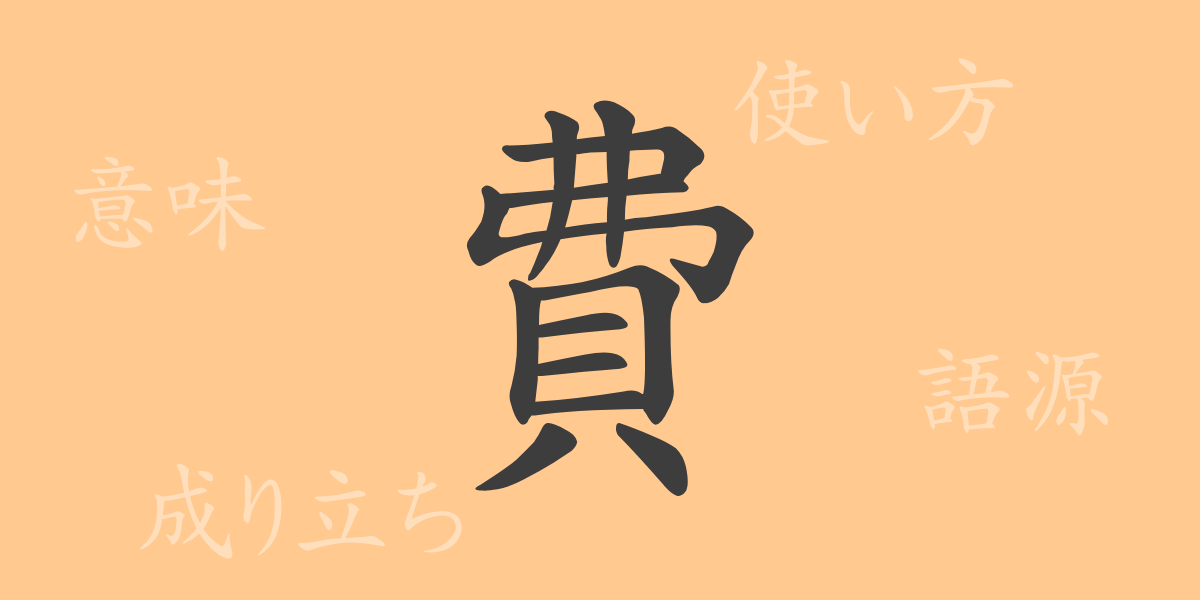“`html
The kanji deeply rooted in Japanese calligraphy, each stroke carrying a rich history and meaning. The kanji “費” (hi) is no exception. Frequently seen in daily life, this character is intricately linked not only to economic activities but also to our overall lifestyle. In this article, we will delve into the origins, meanings, usages, and the idioms and proverbs that incorporate this kanji.
Origins of “費” (hi)
The kanji “費” (hi) originally depicted the character “貝” (kai), representing currency, with “弗” (futsu) inside, symbolizing the dispersal of money. In ancient China, shells were used as currency, so “費” (hi) came to mean the consumption of wealth, or “expenses.” Over time, through various cultural and linguistic evolutions, it has come to encompass a wide range of meanings.
Meanings and Usages of “費” (hi)
The kanji “費” (hi) encompasses meanings such as “to consume,” “to spend,” and “cost.” In economic contexts, it often refers to the costs or expenditures necessary to carry out an activity. It can also be used to denote the investment of time or effort, as in “spending time” (時間を費やす, jikan o tsuiyasu), indicating non-material investments.
Readings, Stroke Count, and Radical of “費” (hi)
The kanji “費” (hi) has several readings, with the basic ones being:
- Readings: On’yomi (音読み) is “ヒ” (hi), Kun’yomi (訓読み) is “つい.やす” (tsui.yasu) and “つい.える” (tsui.eru)
- Stroke Count: 12 strokes
- Radical: 貝 (かいへん, kaihen)
Idioms, Proverbs, and Expressions Using “費” (hi)
There are numerous idioms, proverbs, and expressions that incorporate “費” (hi). Here are a few examples:
- 消費 (しょうひ, shouhi): To consume goods or services.
- 費用 (ひよう, hiyou): The money needed to do something.
- 経費 (けいひ, keihi): Expenses necessary for business or activities.
- 費力 (ひりょく, hiryoku): To exert effort.
- 無駄遣い (むだづかい, mudazukai): To use something wastefully.
These idioms and expressions are frequently used in everyday conversations and business contexts.
Summary of “費” (hi)
As evident from its frequent usage, the kanji “費” (hi) is closely related to our lives. Not only does it hold economic significance, but it also applies to abstract concepts like time and effort. This kanji aptly represents how we perceive value and utilize resources. Whenever you encounter “費” (hi), remember its profound meaning and history.
“`

























